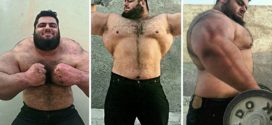The word fat has been perpetually dreaded by people of all age groups alike. For most of us, fat symbolises a food that apparently causes you to be fat and hence of course, cut out the fat from your diet if you don’t want to be fat is a common bandwagon these days.
A diet is healthy and well-balanced only when all the three macro nutrients i.e. carbohydrates, protein and fats are constituted in the right proportion. It is recommended that about 20% to 35% of total calories consumed should come from dietary fats, if not at least a minimum of 10% to 15%.
A single gram of fat irrespective of its type provides 9 calories as compared to 4 calories from carbohydrate and protein, so it is important to understand the right proportion and type of fat to be consumed.
Types of fats
There are four primary types of dietary fat i.e. monounsaturated fats, polyunsaturated fats, saturated fats and trans fats.
Monounsaturated fats and polyunsaturated fats are categorized as the good fats. These are heart friendly fats that decrease the level of triglycerides in the blood and hence the overall levels of cholesterol come down.
These fats not only reduce your level of cholesterols but also reduce the risk of acquiring a heart disease. These fats are known to lower blood pressure by maintaining the levels of HDL cholesterol and reducing the levels of LDL cholesterol. Monounsaturated fats are also a good source of antioxidant vitamin E. Vitamin E helps repair damaged cells and is vital for the health of hair and skin.
Common sources of omega-3 fatty acids: Seafood like tuna, mackerel, herring, sardines, trout, salmon etc. also walnut and flaxseeds.
Common sources of omega-6 fatty acids: Vegetable oils like sunflower oil, corn oil, soybean oil, nuts etc.
These fatty acids cannot be made by the body itself, however are vital for sustaining good health. Polyunsaturated fats also help lower the level of LDL cholesterol and triglyceride levels.
While, omega-6 can be sufficiently obtained from cooking oil, omega-3 has to be specifically included in diet. Apart from including these fatty acids in our diet it is also important to maintain the right proportion or ratio of omega-6 to omega-3, imbalance of which can cause adverse health effects. It is recommendable to maintain a ratio 2:1 of omega-6 to omega-3 for optimum health benefits.
As per dietary guidelines, it is recommended that the saturated fats should form only 7% to 10% of your total calorie intake. For individuals with heart disease or higher levels of cholesterol, less than 7% is recommendable.
On an average consumption of about 20 grams of saturated fat per day is recommended. When consumed beyond the recommended quantities, saturated fats are known to increase the levels of bad i.e. LDL cholesterol, increasing the risk of heart disease and stroke, the statistics are however still a matter of debate.
Production of some of the steroid hormones like estrogens, testosterone require consumption of saturated fats and hence it is advisable to follow moderation rather than eliminating them completely from your diet.
Trans fat is generally made up artificially, it is found in partially hydrogenated vegetable oils. Trans fat is also found naturally in some foods. It is the artificial trans fat which raises the bad i.e. LDL cholesterol. Increase in LDL cholesterol puts you at an increased risk for a stroke or a heart attack.
It is recommended that not more than 2 grams of trans fat per day should be consumed. As per FDA guidelines manufacturers are allowed to write ‘0 trans fat’ on food items that contain 0.5 grams or less trans fat. Hence even packaged foods that say ‘0 trans fat’ should be consumed minimally in order to minimize the overall intake of trans fat.
Benefits of eating healthy i.e. good fats
- Fats fuel your body with a high source of energy: A single gram of fat gives more energy i.e. 9 calories as compared to same proportion of carbohydrates and protein which provide 4 calories. Building muscles requires you to fuel your body with a significant amount of calories which can be obtained from the good fats. Besides, fats also help you keep satiated for a longer period of time which helps keep the hunger pranks at bay.
- Fat enables the body to absorb and retain the fat-soluble vitamins A, D, E and K:Fat soluble vitamins A, D, E and K are transported throughout the body and absorbed via fats. Fat tissues are required to store these fats in the body. Lack of fats results into deficiency of these vitamins. These fat soluble vitamins are essential for sustaining good health.
- Fat provides a protective layer covering the vital organs: Vital organs like heart, kidney and liver require a protective layer of fat. Fat also helps in protecting the body from cold by acting as an insulator.
- Omega-3 and Omega-6 Fatty acids: These are essential fatty acids which cannot be produced by the body itself. Deficiency of these fatty acids can result into dull and lifeless hair and skin as well as poor concentration and mental fatigue.
- Regulation of menstrual cycle: Although there are other causes that can lead to loss of menstrual cycle, lack or absence of fats can result into irregular menstrual cycle or even loss of it. A woman’s body needs proper nourishment before it can prepare itself for pregnancy and hence lack of proper nourishment i.e. deficiency in fats can result into lack of ovulation or loss of menstrual cycle.
- Avoid processed foods and packaged or fried foods to limit your intake of saturated and trans fats. Replace your snacks with nuts like peanuts, almonds, cashew nuts etc. which contain the good i.e. monounsaturated fats.
- Include a minimum of two servings of fish in a week which provide healthy fatty acids like Omega-3
- Replace your cooking oil with olive oil which is high in Omega-6 fatty acids.
- Swap your regular milk or yogurt with skimmed milk or low fat yogurt to reduce the intake of saturated fats.
- Consume more of fruits and vegetables instead of too many servings of carbohydrates, to reduce the total calorie intake and hence the conversion of excess calories into fats.
- Replace meat in your diet with chicken which provides lean protein in order to reduce your intake of saturated fats.
It is not the fat you eat which makes you fat however it is the total number of calories or the type of fat which you should be mindful about. Replacing the saturated and trans fat in your diet with the mono unsaturated and polyunsaturated fats goes a long way in sustaining good health. Eating the right type and quantity of food is something that you should pay heed to rather than completely eliminating fat from your diet.
 Indian Bodybuilding Indian Bodybuilding Articles
Indian Bodybuilding Indian Bodybuilding Articles



